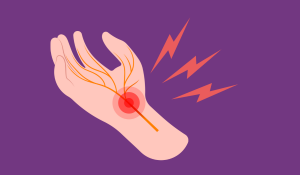Bacteria are microorganisms that naturally exist in and on living organisms, including humans. Most of these single-celled organisms are either neutral or provide critical support for system functions. There are those, however, that are harmful and can cause serious illnesses. Research suggests that CBD decreases bacterial overgrowth in some instances.
Cannabidiol is one of the chemical compounds found in the cannabis sativa and hemp plants. Like the other cannabinoids, it interacts with the body’s endocannabinoid system. One role of the ECS is to support the immune system. Research suggests that in some instances CBD decreases bacterial overgrowth and may help in the treatment of antibiotic-resistant infections.
Bacteria are single-celled organisms that live in and on all life forms in every environment and climate on the planet. They are also found in the air, in soil and in water. For humans, these microorganisms are largely either helpful or neutral. Gut health, for instance, depends on good bacteria and probiotics are one way in which people consume enough of the beneficial strains to keep the digestive system functioning.
However, there are those which are harmful and can lead to illness and disease. Antibiotics are medications that are used to treat bacterial infections. Overuse of these medications has led to strains of bacteria that are resistant to the drugs, thereby increasing the threat of bacteria to cause serious illnesses.
The research on the benefits of CBD in fighting off bacterial infections is promising for some types of illnesses. A study on the effects of this cannabinoid in treating the bacterial infections that result as a complication of cirrhosis demonstrates its potential to reduce inflammation and systemic infection. In some illnesses that have become drug resistant, such as streptococcus pneumonia and staphylococcus aureus, CBD was found to be an effective treatment. There are, however, some instances in which cannabinoids actually increased incidents of host mortality. More research is needed to discover the bacteria-induced diseases that can be treated with CBD and those which shouldn’t be.

Explore this cbd consumption methods tutorial and follow the step-by-step process to select, use, and verify the safest ways to consume CBD for wellness.
Read More
Learn what CBD edibles are, their main types, expected effects, legal status, safety factors, and how they compare to other forms of CBD.
Read More
Therapeutic Uses of CBD Managing Chronic Pain with CBD Struggling with chronic pain? CBD might help. Studies suggest it can reduce inflammation and alleviate discomfort,...
Read More
Just as CBD may help humans due to its interaction with the body’s endocannabinoid system, the same is true of dogs. CBD has the potential...
Read More
Cannabis has been used for millennia to treat numerous health conditions. Current research offers promising results on the effects of CBD oil on breast cancer.
Read More
What Is CBD for Cats? CBD (Cannabidiol) is a natural compound from hemp. It’s non-psychoactive, meaning your cat won’t get “high.” Instead, it works with...
Read More
1. Understanding Neuropathic Pain Neuropathic pain results from nerve damage or dysfunction, causing symptoms like burning, tingling, or sharp shooting pains. Common Causes: Symptoms Include:...
Read More
CBD for Pets: A Pet Parent’s Guide to Dosage We all want the best for our pets, especially when they’re struggling with pain, anxiety, or...
Read More
What Is Lupus? Lupus is a long-term autoimmune condition that can impact multiple organs, including the skin, heart, lungs, and kidneys. The most common type...
Read More
1. Full-Spectrum CBD: The All-In-One Option What it is: Contains CBD, minor cannabinoids, terpenes, flavonoids — and less than 0.3% THC. Why choose it: Promotes...
Read More